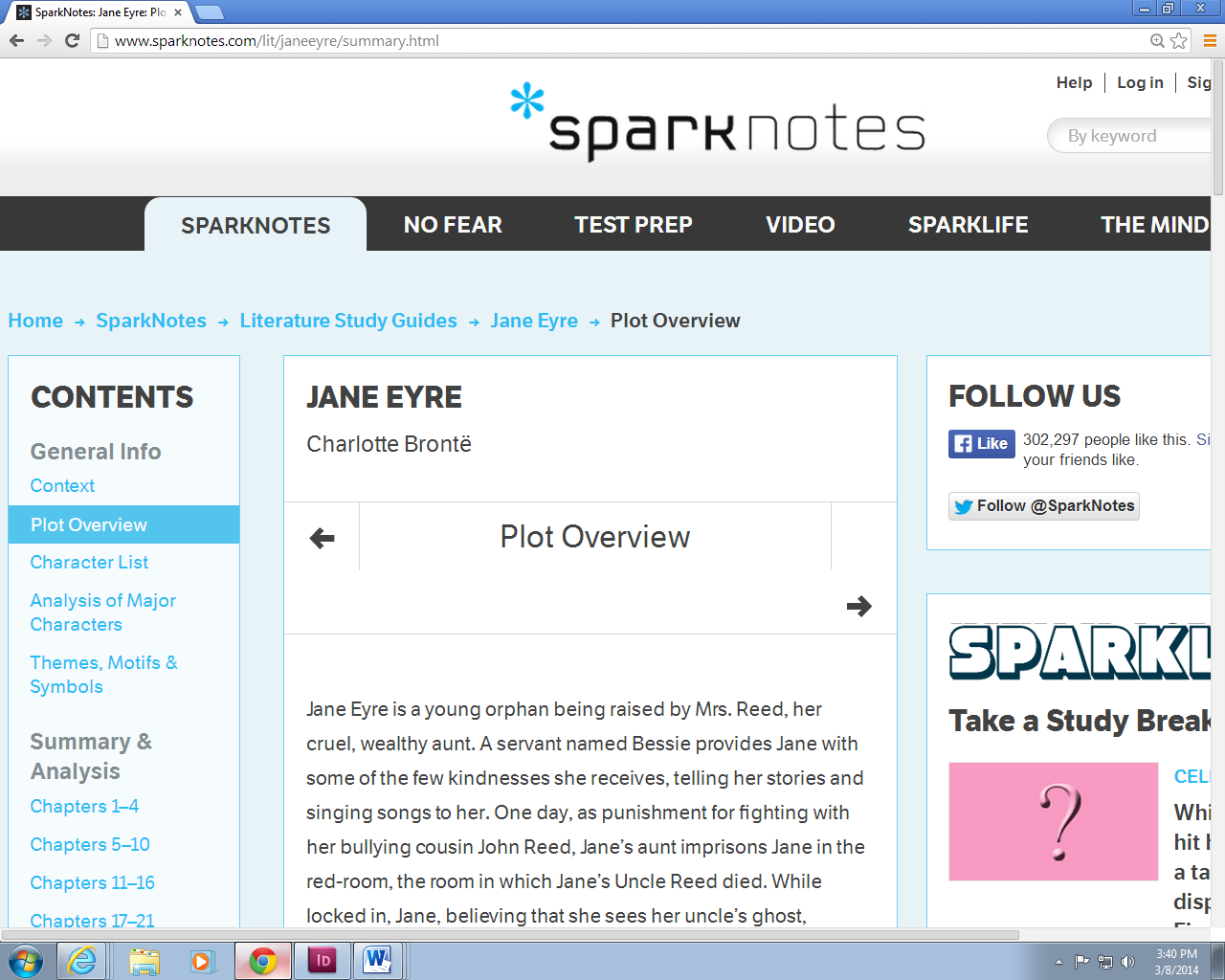Alexa D’Ambrosio ’16, Sonam Saxena ’16: The difficult debate about online cheating rages on. Currently, EA’s policy, as outlined in the student handbook, describes plagiarism and cheating as a “major disciplinary offense.” However, accessibility to online study aids like SparkNotes, most notably its “No Fear Shakespeare” program, is increasing and arousing questions about what is acceptable behavior. As Kevin O’Brien, Upper School English teacher, disclosed is that it is not helpful for students to pretend they are not using them nor for teachers to pretend that they are unaware of the students’ habits. O’Brien just wants to “get real” with the whole thing, explaining that “It’s like putting our fingers on a dam where there’s already a leak.”
According to SparkNotes’ website, the editors of SparkNotes are all “well qualified to lend a hand: we’re graduates of top schools, we have advanced degrees galore, we’ve taught undergraduate and graduate classes, and we’ve edited books on Shakespeare, The Scarlet Letter, and the SAT.” The editors “work with experts to create books, blogs, quizzes, and flashcards that will help you master the hard material.” SparkNotes is not, however, ignorant of the implications of cheating the site induces in teachers and professors. At the bottom of the “About” page, SparkNotes puts a disclaimer: “We’re here to help you learn, not to help you cheat. Our literature guides are meant to be read along with the books they analyze.”
It can be difficult to draw the line between the truly curious students who seeks extra help from study aids as a supplement to the primary text and those who use study aids simply substitute for reading altogether. Plagiarism is one of the “major pitfalls of students,” but could this be because students do not understand how to use study aids properly? O’Brien pondered, “Could the teachers embrace the study aids and assess if they are good or bad sources for themselves, but more importantly for their classes?”

Photo courtesy of Kaitlin Croney ’16
“The first impulse we all have is to look it up…to Google it,” said O’Brien. Thus, he relayed, “the big questions on the minds of many teachers are ‘How do we teach a Google generation?’” In response to this, some teachers are trying to make assessments more detail-based so that only the students who actually read the primary text will know the answers. However, by focusing too carefully on close reading, the story can lose its excitement and become seemingly “dead.”
While O’Brien admitted, “it takes a lot of discipline to read only the primary text,” the primary text holds the true words of Shakespeare himself. A student “cannot capture Shakespeare through these [online sources].” The Shakespearean language holds “real beauty…imagery he creates in the mind’s eye,” followed by “his wordplay and originality,” creating quite a few words of his own. “Secondary sources water down Shakespeare” and it is difficult to determine “Is this what Shakespeare was really getting at?”
Jennifer Maier, also a member of the English department, added, “It’s the beauty of the language, all the beautiful images that are stripped away when you use No Fear. And I like the challenge of the language and expanding my vocabulary…It’s poetry.” She continued, “Episcopal students are strong and don’t need it.”
On the other hand, “No fear Shakespeare” can be a great tool for understanding Shakespeare’s dense language. Kristina Zahan ’14 clarified, “It’s important to differentiate ‘No Fear’ and SparkNotes. ‘No Fear’ puts a ‘modern translatation’ side by side with the words Shakespeare wrote. When reading the original text, you will come across a word, phrase, or analogy that seems completely foreign. A quick shift of the eye to the right and you’ll see the meaning in a form of English that you actually understand. You don’t have to crack open a dictionary, adding another hour to the five hours of homework you have already. With the tagline “When your books and teachers don’t make sense, we do,” SparkNotes offers a tempting source when trying to comprehend a text.